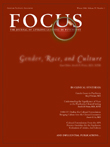Differential Responses to Psychotherapy Versus Pharmacotherapy in Patients With Chronic Forms of Major Depression and Childhood Trauma
Abstract
Major depressive disorder is associated with considerable morbidity, disability, and risk for suicide. Treatments for depression most commonly include antidepressants, psychotherapy, or the combination. Little is known about predictors of treatment response for depression. In this study, 681 patients with chronic forms of major depression were treated with an antidepressant (nefazodone), Cognitive Behavioral Analysis System of Psychotherapy (CBASP), or the combination. Overall, the effects of the antidepressant alone and psychotherapy alone were equal and significantly less effective than combination treatment. Among those with a history of early childhood trauma (loss of parents at an early age, physical or sexual abuse, or neglect), psychotherapy alone was superior to antidepressant monotherapy. Moreover, the combination of psychotherapy and pharmacotherapy was only marginally superior to psychotherapy alone among the childhood abuse cohort. Our results suggest that psychotherapy may be an essential element in the treatment of patients with chronic forms of major depression and a history of childhood trauma.



